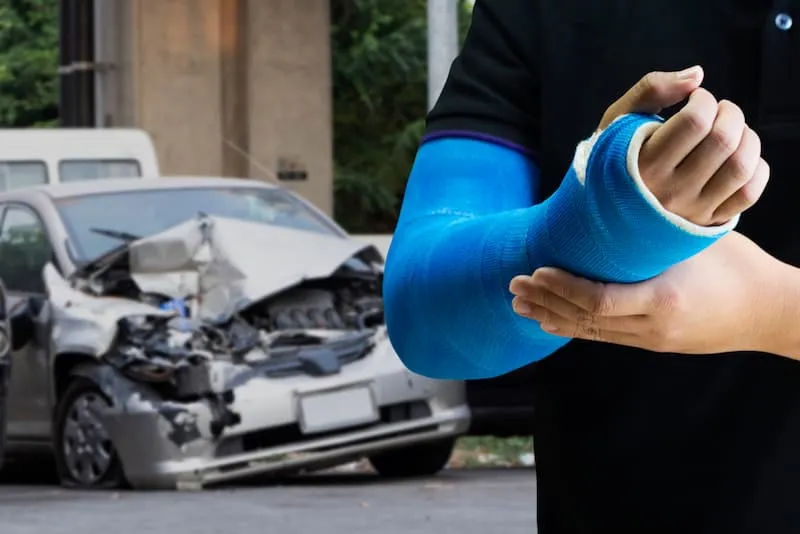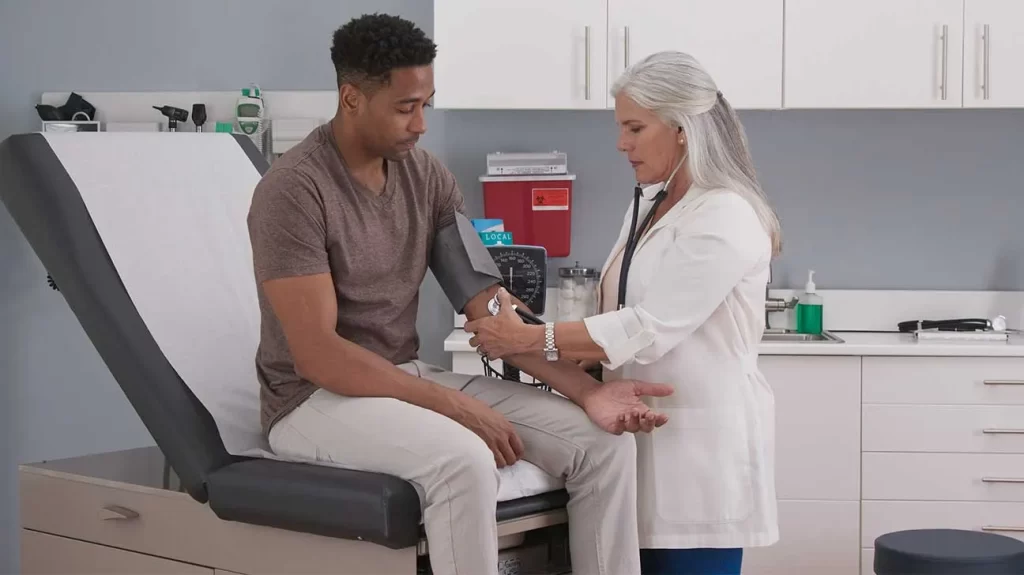Nearly 40% of all spinal cord injuries in the United States result from motor vehicle accidents. And if you’re living in Albuquerque, this statistic isn’t just a number. It’s a reality that could affect you or someone you love. As you navigate the congested roads of our city, it’s crucial to be aware of the medical services that stand ready to support your recovery journey should the unexpected happen, like the post-accident medical services in Albuquerque.
Albuquerque’s network of immediate response teams, hospital trauma centers, and rehabilitation programs is geared toward saving lives and ensuring the quality of life post-recovery. But how exactly do these post-accident medical services interconnect to create a seamless continuum of care? What can you expect if you ever need their expertise?
Stay with us as we explore the integral steps of post-accident medical services in Albuquerque. We will also discover how they can help transform a moment of crisis into a manageable path toward healing.
→ Take time to read our different articles that could interest you.
–Essential Guide To Responding After A St. Paul Auto Accident – 1-800 Ask Gary
–Cruising In Florida: Essential Tips To Avoid Motorcycle Crashes – 1-800 Ask Gary
–Importance Of Chiropractic Care Post-Auto Accidents – 1-800 Ask Gary
–Exploring The Relationship: Speeding And Personal Injury Lawsuits – 1-800 Ask Gary
Visit our blog now!
Key Takeaways
- Immediate Response and Emergency Medical Services are crucial in providing swift and essential medical aid to accident victims. They focus on assessing conditions, stabilizing injuries, and preparing for transport if necessary.
- Hospital Trauma Care involves specialized teams and advanced diagnostics to provide comprehensive care. It includes surgeries and monitoring in intensive care units for severe injuries and post-surgery recovery.
- Physical Rehabilitation Programs are tailored to individual needs and focus on pain management, mobility, strength, skills reacquisition, and long-term wellness. They utilize evidence-based practices and technology-assisted interventions.
- Psychological Support Resources are available to address trauma-related stress, anxiety, and depression through professional counseling services, support groups, mindfulness workshops, and crisis hotlines. It is because they recognize the importance of psychological well-being in recovery.
- Follow-up and Long-Term Care involve consistent monitoring, check-ins with healthcare providers, ongoing therapy sessions, and the potential need for adaptive equipment or home modifications to cater to the individual’s long-term health needs. Establishing a support network and maintaining communication with healthcare providers is emphasized.
Immediate Response Teams
In the critical moments following an accident in Albuquerque, immediate response teams are dispatched swiftly to provide essential medical aid. You mightn’t always see what’s going on behind the scenes. However, rest assured! A well-oiled machine of professionals springs into action to ensure your safety and health.
These responders are a mix of paramedics, emergency medical technicians (EMTs), firefighters, and police officers, each trained to handle the chaos of a post-accident scene with precision and care. They assess your condition, stabilize any injuries, and prepare you for transport if necessary. Their goal is to provide immediate, life-saving interventions within the ‘golden hour’—the first hour after an injury occurs, which is crucial for your survival and long-term recovery prospects.
The teams operate with a high level of coordination, often communicated through a centralized dispatch system. This system allows for real-time updates on your situation and the accident scene, enabling responders to adapt their strategies as needed. They work under continuously reviewed and updated protocols based on the latest medical research and techniques.
You’re in capable hands with Albuquerque’s immediate response teams. They’re the first link in the chain of survival, providing a critical bridge from the moment of your accident to the threshold of the hospital.
Hospital Trauma Care
Once stabilized by immediate response teams, you’ll be swiftly taken to a hospital where specialized trauma care awaits to address your critical needs. At this crucial juncture, every second counts. Albuquerque’s medical centers have state-of-the-art facilities and highly trained personnel to ensure you receive the best possible care.
To understand what this entails, consider the following key aspects of hospital trauma care:
- Multidisciplinary Teams: You’ll be treated by experts from various medical fields. This includes trauma surgeons, nurses, anesthesiologists, and other specialists who work in unison to provide comprehensive care.
- Advanced Diagnostics: Hospitals employ cutting-edge diagnostic tools, such as CT scans and MRIs, to quickly assess your injuries, allowing for timely and accurate treatment plans.
- Surgical Readiness: If surgery is necessary, operating rooms are on standby round the clock, and teams are ready to perform life-saving procedures immediately.
- Critical Care Units: After surgery or for severe injuries, you’ll be monitored in intensive care units (ICUs), where constant supervision and state-of-the-art equipment support your recovery.
This analytical approach to trauma care maximizes your chances for a full recovery by ensuring that every aspect of your treatment is meticulously planned and executed.
Physical Rehabilitation Programs
Your journey toward regaining strength and mobility after an accident involves a tailored physical rehabilitation program designed to meet your specific needs. In Albuquerque, these programs are crafted by specialists who analyze your injuries and create a plan that targets your recovery goals. You’re not just another number; you’re an individual with unique challenges and aspirations.
Here’s a concise breakdown of the core elements that might be included in your rehabilitation program:
| Phase | Focus Area | Expected Outcomes |
| Initial | Pain Management | Alleviate discomfort, reduce inflammation |
| Intermediate | Mobility | Restore range of motion, improve flexibility |
| Progressive | Strength | Build muscle, enhance endurance |
| Functional | Skills Reacquisition | Regain ability to perform daily activities |
| Maintenance | Long-term Wellness | Prevent re-injury, maintain health status |
Each phase of your rehab journey is supported by evidence-based practices, ensuring you’re getting the most effective treatments. You’ll work with physical therapists who use a mix of hands-on techniques, exercises, and sometimes even technology-assisted interventions. They’ll continually reassess your progress, adjusting the program as you improve to keep you on the most direct path to recovery. Remember, your resilience and commitment, coupled with expert guidance, will steer you back to your best self.
Psychological Support Resources
Navigating the psychological aftermath of an accident, Albuquerque offers a wealth of resources designed to support your mental and emotional recovery. It’s essential to acknowledge that healing isn’t solely about the physical wounds; your psychological well-being is equally critical. Here’s a breakdown of what’s available:
- Counseling Services: Professional therapists and psychologists are on hand to help you work through trauma-related stress, anxiety, and depression. These services can be found in private practices or through hospital affiliations.
- Support Groups: Connecting with others who’ve had similar experiences can be incredibly healing. Albuquerque hosts various support groups, providing a space to share stories and coping strategies.
- Mindfulness and Stress Reduction Workshops: These programs teach techniques for managing stress, improving resilience, and maintaining mental balance. They often include practices like meditation and yoga.
- Crisis Hotlines: For immediate assistance, 24/7 crisis hotlines offer a lifeline to those in acute emotional distress. Trained volunteers provide confidential support and can guide you to further resources.
Follow-up and Long-Term Care
Embarking on the journey of recovery, it’s crucial to understand that follow-up and long-term care are pivotal components of the healing process after an accident in Albuquerque. Once you’ve received initial treatment, consistent follow-up appointments are essential to monitor your progress and adjust your recovery plan as needed. Depending on the nature and severity of your injuries, this may include regular check-ins with your primary care physician, physical therapy sessions, or visits to a specialist.
Long-term care becomes relevant if you’re facing ongoing health issues stemming from the accident. This could range from continued physical therapy to manage pain and regain mobility to more specialized services like occupational therapy or chiropractic care. It’s essential to establish a support network, which may involve health professionals, family members, and possibly home care services, to assist with daily activities if you’re not fully independent.
Your recovery may also require adaptive equipment or home modifications, and understanding the resources available in Albuquerque to obtain such assistance is critical. Stay proactive and keep open lines of communication with your healthcare providers. They’re your partners in navigating the complexities of long-term recovery and ensuring you have the best possible outcomes.

What is 1-800-ASK-GARY?
1-800-ASK-GARY is a 24/7 complimentary helpline for individuals involved in motor vehicle accidents, including cars, commercial trucks, and motorcycles. Our team of specialists is available to assist those injured in such incidents at any time of day. Furthermore, we will directly connect you with a medical or legal expert who can support you in the aftermath of the accident.
→ Call us at (1-800-275-4279)
Our Services:
Frequently Asked Questions
What Steps Should One Take to Secure Financial Compensation for Medical Expenses and Lost Wages Following an Accident in Albuquerque?
You should document your injuries, file an insurance claim, and consider hiring a lawyer. That lawyer will help navigate the process and ensure you receive fair compensation for medical costs and lost wages.
How Does Albuquerque’s Public Transportation System Accommodate Individuals Recovering From Accidents During Their Transition Back to Normal Life?
Public transportation in Albuquerque includes accessible post-accident medical services to help people transition back to daily life after an accident. Examples are low-floor buses and SunVan paratransit for those with more significant mobility challenges.
Are Legal Aid Services Available in Albuquerque for Those Who May Need Assistance With Insurance Claims or Disputes After an Accident?
Yes, you’ll find legal aid services in Albuquerque to assist with insurance claims or disputes after an accident. They can ensure you’re not alone during this challenging process and that your rights are well-represented.
What Community Support Groups Exist for Families of Accident Victims to Help Them Cope With the Aftermath and Changes in Family Dynamics?
You’ll find various support groups in your community for families of accident victims. They will provide coping strategies and help with shifting family dynamics after traumatic events. They also offer comfort and practical guidance.
Can Accident Victims in Albuquerque Access Alternative Medicine or Holistic Treatment Options During Their Recovery? Does Insurance cover these?
Alternative medicine and holistic treatments are available in Albuquerque, but insurance coverage varies. Check with your provider to see if therapies like acupuncture or chiropractic services are included in your plan.
Conclusion
You’ve seen the resilience of Albuquerque’s medical system, from the on-scene immediacy of response teams to the comprehensive trauma care at hospitals. Your journey through physical rehab and psychological support has been crucial in mending both body and mind. Remember, long-term care and follow-up are the cornerstones of a full recovery. Post-accident medical services in Albuquerque ensure you’re never alone on the road to healing. They will provide a continuum of care that adapts to your evolving needs.


